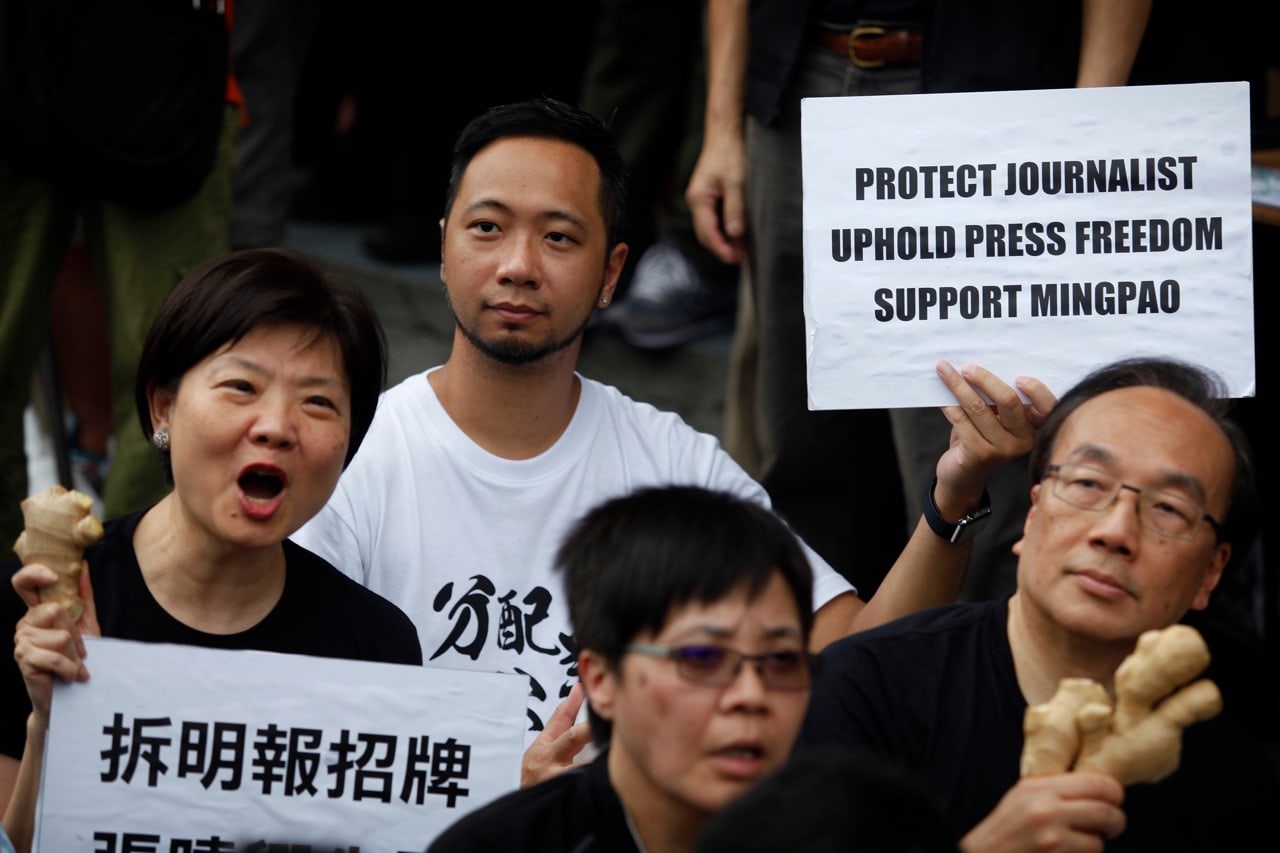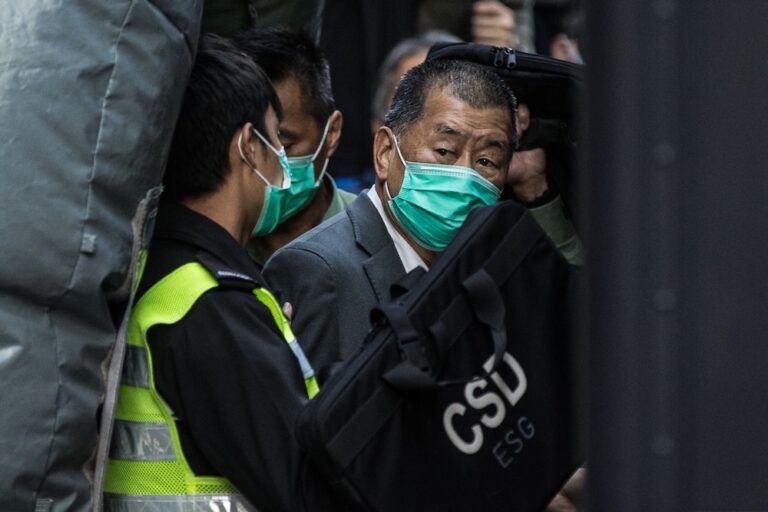Survey results indicate that pressure from the Central Government is seen as a major force damaging press freedom in the city; 70% of journalists feel that press freedom in Hong Kong has worsened in the last year.
This article was originally published on hkja.org.hk on 11 April 2018.
A Hong Kong Journalists Association (HKJA) survey reveals that the Hong Kong Press Freedom Index for the general public has dropped to a new low. The index for journalists shows a slight rise due to a number of factors including the reduction of violence against journalists. Pressure from the Central Government is seen in both surveys as a major force damaging press freedom in the city.
The Hong Kong Press Freedom Index ranges from 0 to 100, which is the highest point for press freedom. This survey was done during January to February in 2018 to evaluate press freedom in the past year.
The Index for 2017 declined by 0.9 point to 47.1 for the general public – a record low since the survey’s launch in 2013. The decline was largely due to fact that the public believes it has become increasingly common for local news media to have doubts or hesitation when criticizing the Central Government and major business conglomerates. Both ratings dropped by 0.3 respectively.
The Press Freedom index for journalists is 40.3, an increase of 0.9 point compared to that of 2016. The rise was largely due to a remarkable improvement in the rating on extralegal intimidation or physical violence at work (+0.8), reflecting the drop in incidence of violence against journalists last year. Improvements in obtaining information for reporting (+0.4) is another cause of the rise. However, 70% of journalists were of the view that press freedom in Hong Kong had become worse compared to a year ago. Only 23% of journalists in the survey believed that it remained unchanged.
A major finding of the survey is that both the public and journalists see pressure from the Central Government as a major factor threatening press freedom in Hong Kong. This is shown by the following statistics:
1) The public respondents perceived that it was more common for local news media to have doubts and hesitation in criticizing the Central Government (rating at 3.8 points), when compared to criticizing business tycoons (4.3 points) and HKSAR Government (4.4 points). On a scale of 0 – 10, the lower the mark, the more common the situation is.
Graph 2: The Public views how common it is for local news media to have doubt or hesitation when criticizing the following targets (The lower the rating, the more common it is)
2) Journalists responded that there have been increasing instances of their supervisors or management editing or deleting their articles and news reports, or rejecting their story ideas for fear of offending the Central Government. The rating on this aspect dropped from 7.1 points in 2013 to 6.2 points in the latest finding. (From 0-10, the lower the rating, the more common the situation is).
3) When journalists assessed the press freedom situation in Hong Kong, the Central Government has replaced the HKSAR government as one of the three most important factors. The top three factors are namely self-censorship by the media, Central Government and media owners. Half of journalist respondents listed Central Government as the most important factor. Last year it was 38%.
Graph 3: The three major factors journalists considered that would affect their assessment of press freedom in Hong Kong
4) In the past year, Beijing officials kept putting pressure on the Hong Kong Government to introduce Basic Law Article 23. Over 91% of journalists responded believed that had damaged press freedom in Hong Kong. In the public sector, 60% of the respondents shared such a view.
5) Among the journalist respondents, 63% said the increasing emphasis of one country over two systems by central government officials had made them uncomfortable in reporting dissenting voices.
Besides, among the journalists, 93% or above regarded the following events in 2017 as damaging to press freedom. i) Macau government barring various Hong Kong journalists from entering the city. ii) TVB switched a regular RTHK program for the speech of President Xi Jinping leading the Communications Authority to warn TVB against such a diversion from the regulatory guideline. iii) South China Morning Post retracting a column that associated President Xi Jinping’s top aide with a businessman.
The Hong Kong Journalists Association urges the Chinese Central Government to respect press freedom and adopt a restraint attitude when exercising its powers. We maintain Basic Law Article 23 should not be enacted when the society has no consensus on the issue. Results of our survey show journalists and the public fear legislative work would deal a severe blow to press freedom. Freedom of the press and information is one of the four pillars of Hong Kong’s success. We urge the Government not to do anything that erodes the pillar.
The public survey was conducted by the HKU Public Opinion Programme from Jan 15 to 18, 2018. A total of 1,033 Cantonese speaking Hong Kong residents aged 18 or above were successfully interviewed. HKJA distributed questionnaires to journalists between Jan 15 and Feb 28, 2018. A total of 520 completed questionnaires were returned.






